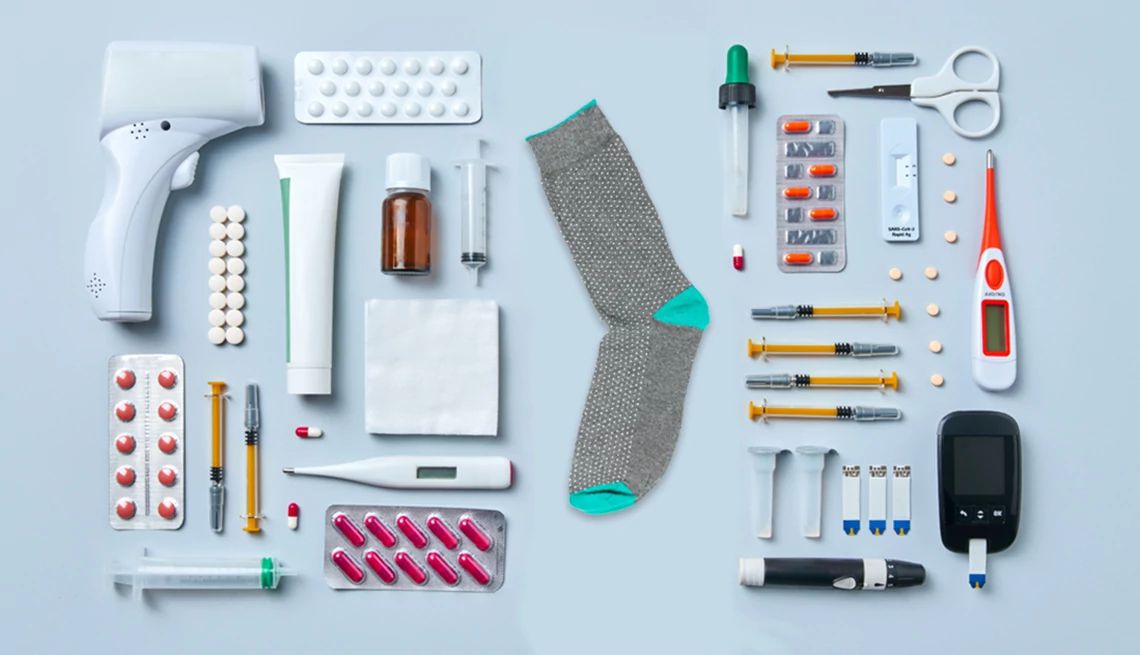AARP Hearing Center


In this story
DME defined • Eligible equipment • Your portion of the cost • Fraud tips
Yes. Medicare Part B covers prescribed equipment and supplies for home use that are considered medically necessary.
The key is that the materials must be categorized as durable medical equipment (DME), meaning they can withstand repeated use.
What DME will Medicare cover?
Medicare Part B covers doctor-prescribed, medically necessary equipment and supplies, such as:
- Blood sugar meters and test strips
- Commode chairs
- Compression socks
- Continuous glucose monitors
- Continuous positive airway pressure (CPAP) machines
- Hospital beds
- Infusion pumps and supplies
- Oxygen equipment and accessories
- Walkers
- Wheelchairs and scooters
Medicare also covers prosthetic and orthotic items, such as:
- Arm, back, leg and neck braces
- Artificial eyes and limbs
- Breast prostheses following a mastectomy
- Ostomy bags and related supplies for those who have had operations to control digestive or urinary tract diseases
- Therapeutic devices, such as shoes or inserts for diabetics with foot problems
- Urological supplies
What DME won’t Medicare cover?
Medicare won’t cover equipment and supplies you may need for medical reasons but are considered disposable, such as:
- Incontinence pads
- Rolled elastic bandages
- Surgical face masks
Also likely to be rejected because they’re convenience items and not medically necessary are:
- Air purifiers
- Bathtub lifts
- Raised toilet seats
- Other home safety equipment
How does the equipment qualify for coverage?
To pass Medicare’s test for coverage, the equipment or supplies must be:
- Considered medically necessary, not just convenient
- Used in your home (a long-term care facility can qualify as your home)
- Able to withstand repeated use and likely to last at least three years
- Typically only useful to someone who is sick or injured
- Prescribed by a doctor, nurse practitioner, physician assistant or other primary care professional
- Provided by Medicare-approved suppliers
Some items, such as oxygen equipment and power wheelchairs, have additional requirements before Medicare will cover them. That could include getting prior authorization or renting instead of buying.



































































More From AARP
A Caregiver’s Guide to Smart Home Technology
Living independently as long as possible is the goalWhat Caregivers Should Know About Medicare Coverage
How to navigate the system and get the help you needThese Comfort Food Recipes are Primed to Become New Favorites
Craveable dishes you can feel great about making